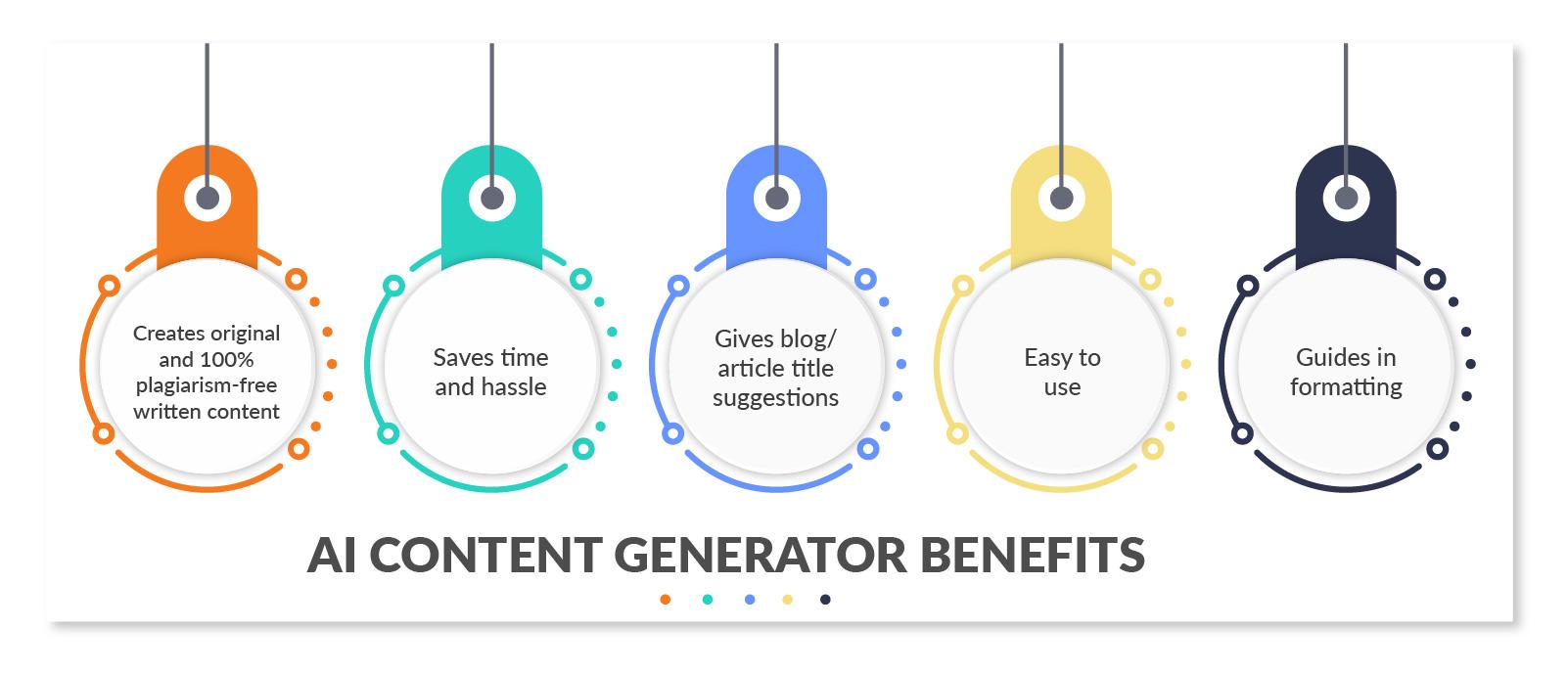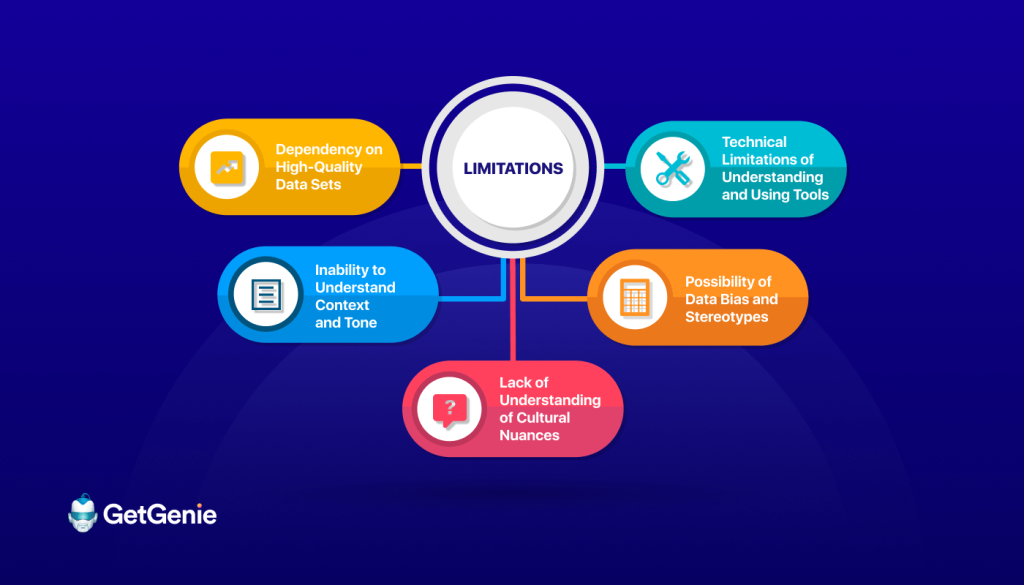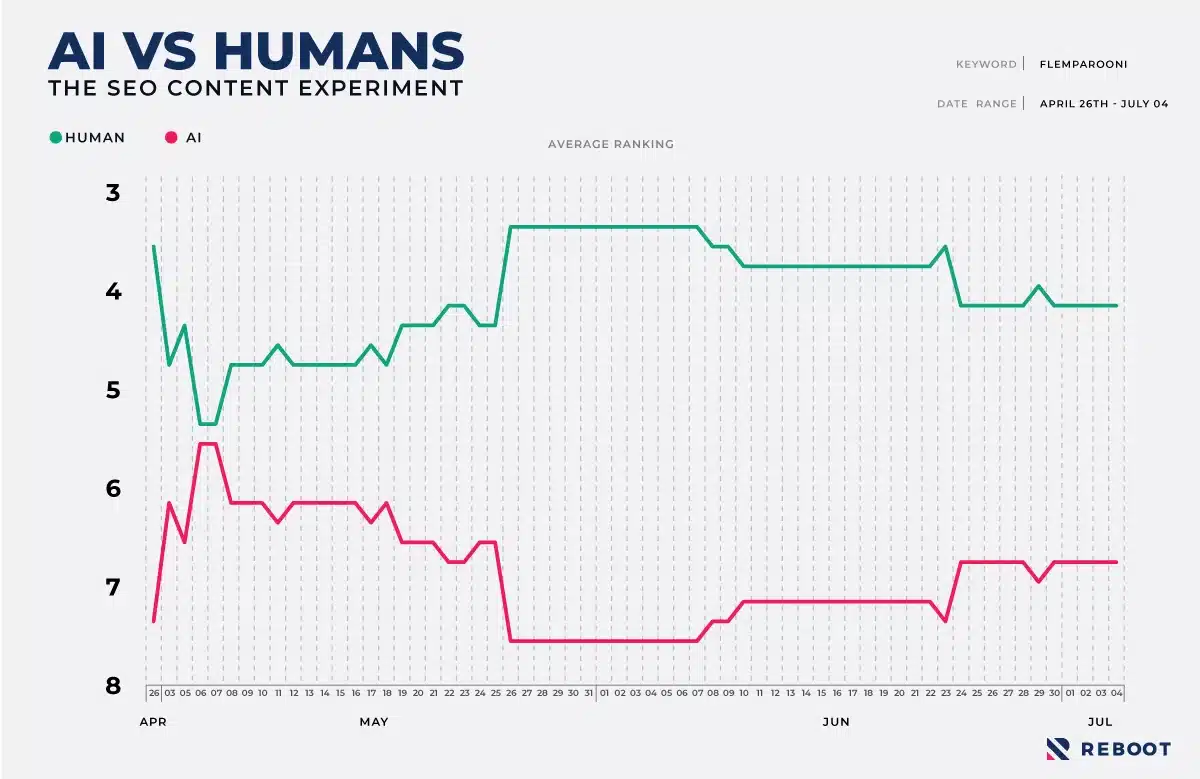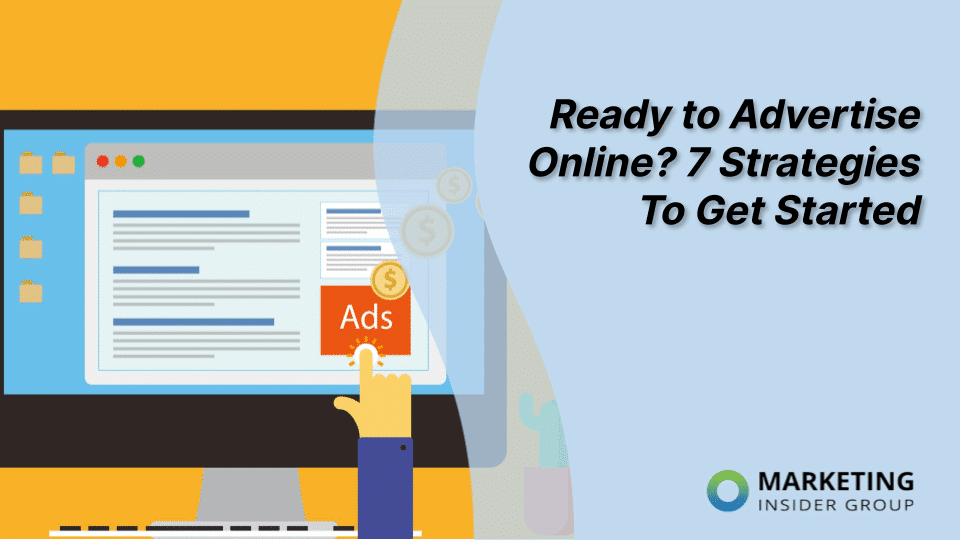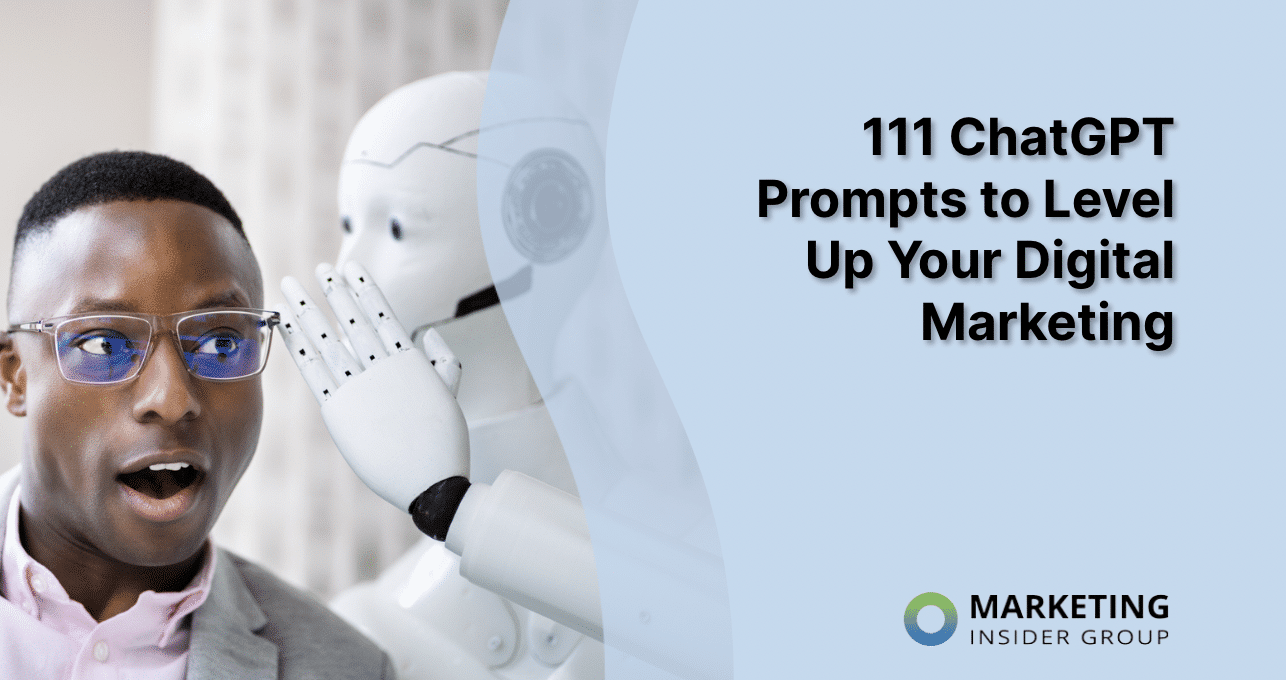
ChatGPT Traffic and Usage Is Down. Why The Hype Has Started To Fade
AI generated content and chatbots have taken the world by storm this year.
After a few months, though, the seemingly flawless piece of technology is starting to lose its credibility as it continues to be proven lacking in certain areas.

Source: Fortune (July 19, 2023)
Read on to find out how and why the hype behind AI is fading.
Quick Takeaways:
- AI-generated content has limitations such as misinformation, lack of creativity, and biased information.
- Ethical concerns highlight the need for responsible use and regulation of AI-generated content.
- AI cannot fully replace human creativity and intervention in content creation.
- AI is a valuable tool, not a complete solution
The Hype Behind AI Content
AI generated content refers to anything that is created with the assistance or complete involvement of artificial intelligence algorithms or Large Language Models (LLMs).
These models can learn patterns, structure, and semantics of text to generate coherent and contextually relevant content in response to questions.
However, despite AI’s speedy rise to fame, many experts are starting to uncover some pretty substantial issues with AI and our new obsession with it.
-
Image Source: Socialbu
So here is a quick reality check on the limitations of AI-generated content and some potential theories for why, according to the Washington Post, “Traffic to ChatGPT’s website and app fell 9.7% in June from the previous month”
Why Everyone Fell for the Idea of AI-Generated Content
People got excited about AI because the technology has various applications, including content creation for marketing, advertising, entertainment, and other fields. In fact, AI models were incredibly prominent among high school and college students, making it popular in a wide range of age groups.
This could be the reason why, according to Harvard Business Review, AI Models “reached 100 million users in two months, making it the fastest growing consumer application of all time.”
Professionals in a multitude of fields were even starting to sweat, worrying that ChatGPT and other AI resources could outperform humans in many job areas.
In theory, these models sound like an amazing tool. Harvard Business Review also gave some of the main reasons AI seemed like such perfect invention:
- Automated content generation
- Improved content quantity
- Content variety
- Personalization of content
- Potential to cut costs
Now, everything has pros and cons and there are many reasons why AI models are not the powerhouse we originally pictured…
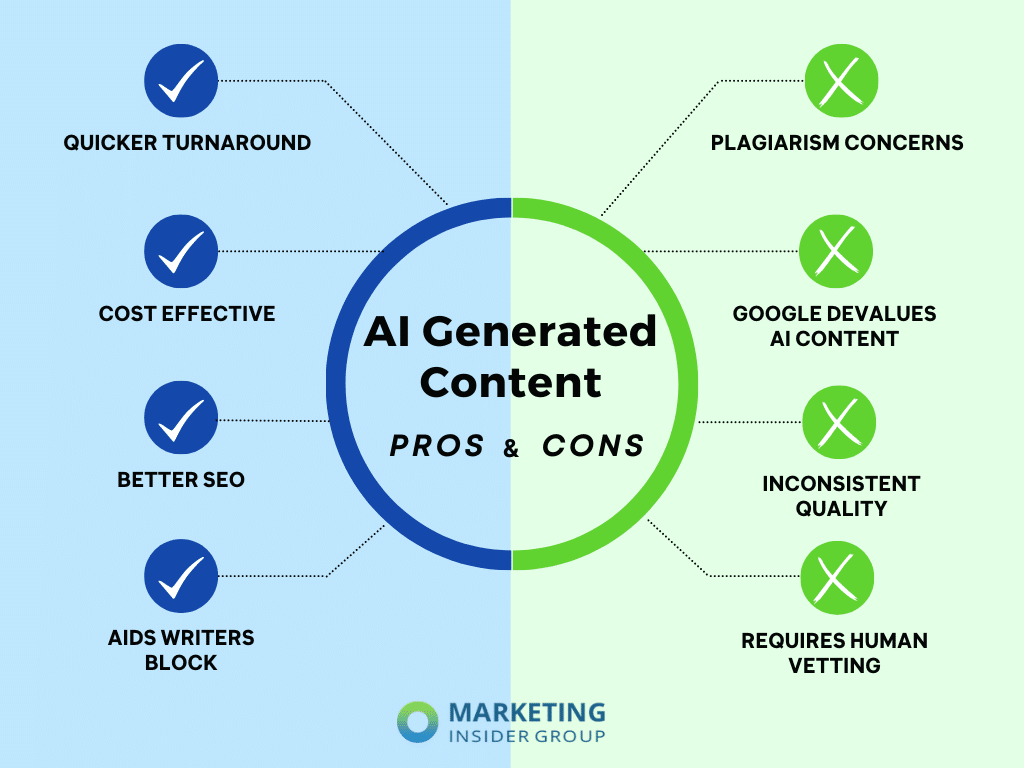
Understanding the Limitations
Recently, Open AI has been under scrutiny from their users due to complaints about restrictions that have been placed on ChatGPT responses.
The limitation of input and censorship of prompts has caused some users to view the model as “less useful, less trustworthy, or simply less fun.”
Another issue is that chatbots are great at generating information, but the responses they give are often too robotic, creating the need for human intervention and editing.
Similarly, the one thing humans will beat AI out on every time is creativity. It is simply not possible for AI Models to produce responses with the creativity or imaginative nature that humans possess.
All of these factors present limitations in the type and quality of content that AI gives us. This is just the start of why AI is not all that we imagined it would be.
-
Image Source: GetGenie
AI Ethics Issues
As mentioned previously, it was originally thought that AI could replace a number of jobs in tons of different fields. However, the use of AI in a business setting could actually pose more risks than rewards.
That is why it is important to understand the ethical dilemmas that come with using AI content…
Bias
Since the language models pull information from all over a huge set of data, there is a guarantee that some of the information will contain offensive, biased statements. AI algorithms can be programmed to generate content that reinforces those specific biases or narratives.
“Hallucinations”
Another huge concern at the moment is that AI has been found to twist information and spray small false details into its responses. This phenomenon is called “hallucinations” and they occur because AI models don’t have fact-checking processes.
According to Forbes, ChatGPT “gave wrong answers” and “censored certain subjects, among many other issues.” Situation like this tarnish the trustworthiness and credibility of all AI models.
Transparency and Disclosure
One highly discussed issue is the transparency and disclosure of using AI-generated content. The baseline problem lies in the idea that audiences have the right to know when they are consuming content made from AI models and not humans due to the potential for bias and misinformation.
Plagiarism and Legal Implications
When ChatGPT launched, it was very popular in a specific demographic: students. There was a rampant use of the chatbot for essay writing, which, for many institutions, constitutes plagiarism that is more difficult to detect.
This sparked questions about the legal troubles AI content could cause. Who does the AI content belong to and how can Copyright laws keep up with this new technology?
Whether it’s an incorrect fact, a made-up quote, or false data, the implications these missteps can have on a business are not worth the risk.
Real-World AI Shortcomings
Now, a new development in the AI timeline has surfaced. Recently, users are complaining that ChatGPT’s newest redesign has caused the chatbot to become “dumb”, with some even calling it “braindead”.
The update was meant to make the bot produce information faster, and though the speed has improved, it seems the quality of information being spurted out is much inferior to the previous version.
The general consensus appears to be that users would rather have a slightly slower but more in depth AI experience compared to the faster, but “lazy” and “unreliable” redesign.
Another real-life AI pitfall was exposed with a case study on AI vs. Human SEO content. The experiment was conducted to measure how both AI and Human authored content would perform and rank in a controlled environment.
Long story short, on average, the AI-generated content ranked poorer than the human content did:
-
Image Source: Reboot
The test went to show that jobs in writing are not at as much risk as some are suggesting. Human writers are still indispensable if you want your content to flourish.
The Future Role of AI
The bottom line is, AI will not be able to replace humans when it comes to creating content. That being said, Artificial Intelligence models are certainly not going anywhere, and they are most definitely not useless.
Sadly, AI is not some miracle engine that is able to do anything and everything for us. However, chatbots can be an amazing tool and resource when it comes to making outlines, brief summaries, and answering quick questions.
Looking forward, these chatbots can really help us when it comes to making content. Overall, the actual construction and shaping of the content absolutely cannot be done without the best content producers out there… humans!
Things to Remember
AI-generated content has generated excitement and potential in various fields, but it is important to understand its limitations and the ethical issues it presents.
Concerns over bias, false information, transparency, disclosure, plagiarism, and legal implications have highlighted the need for responsible use and regulation of AI-generated content.
The role of humans in content creation remains indispensable as AI can be a valuable tool for assisting in certain aspects of content production, but cannot fully replace the expertise and artistry of human content creators.
We will continue to see purpose driven marketing take a bigger role in driving thought leadership and positioning brands for greater awareness.
As we move forward, it is crucial to strike a balance between leveraging AI’s capabilities and upholding the essential role of human creativity in shaping content.
If you’re looking for a way to cut back time in the content creation department, but you’re smart enough not to go the AI generated route, you’ve ended up in the right place.
Check out our content builder services or schedule a free consultation with us today!

